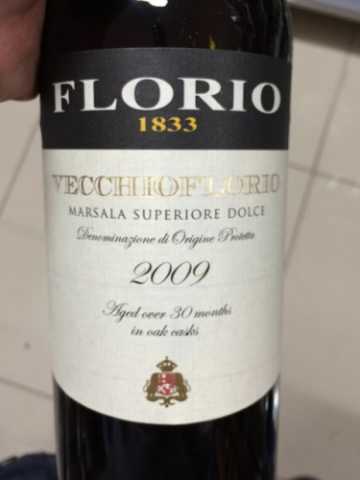Berserkers,
I took a chance a while ago on a couple of bottles each of Florio 2009 Vecchioflorio Marsala Dolce and Pellegrino 1881 Marsala Dolce. I don’t see any postings at all on this wine and after cracking open a bottle, I have some thoughts and was wondering what people here thought of the stuff.
This particular brand is very proud of the fact that it is aged for 30 months in oak far beyond the traditional 24 months required and states so right on the label. Not sure how much difference those extra six months truly make, but I can tell you that in terms of color and flavor, the wine is very similar in taste and sweetness to Malvasia-based sweet Madeira wine with strong stewed fruit flavor, citrus tones, and burnt toffee caramel flavors.
Where I find it differs is a touch less sharp acidity and coffee flavors on the finish, no salinity to speak of (to be expected, it comes from Italy and not Portugal, after all), and minterality is non-existent but it is also way, way smoother in mouthfeel and texture and really glides on the palate.
I was quite surprised at how smooth it was, actually, with little to no heat and perfectly integrated. The only other fortified wines I’ve had that have been so soft and silky and well-integrated are Vintage Ports from the 80s and French fortified wines from the late 70’s/early 80’s.
This is not a big wine by any means but it is a nicely balanced one. All this said, it doesn’t have complexity to match the sweet wines we tend to post about more here like Vintage Port and Sauternes. There is no doubt that this is a quality wine, but I cannot see it evolving into anything more than it is. I enjoy it but don’t feel the need to buy any more bottles.
Interestingly, I also have a couple of bottles of DRY Marsala from the same makers, a 1997 Baggio Florio and 1981 Pellegrino anniversari. Both are a bright orange color which indicates no cooking of the must has been done and is in fact what I expected these Dolces to look like when I first bought them. (The bottles are all black glass). It will be interesting to compare them to dry Spanish sherry, especially Palo Cortado and Oloroso which I love.
So… anyone have any thoughts to share on the Marsalas they’ve had before?
